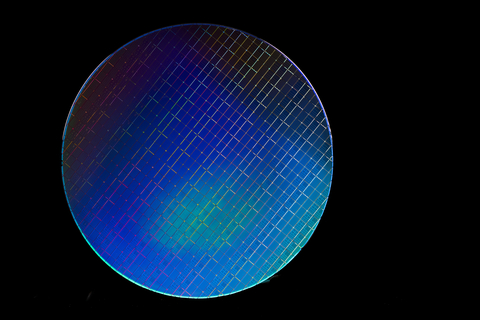Intel Releases Quantum Software Development Kit Version 1.0 to Grow Developer Ecosystem
Intel Quantum SDK is a full quantum computing stack in simulation that offers a customizable development environment for a broad range of developers.

A photo shows Intel’s fully processed 300-millimeter silicon spin qubit wafer. (Credit:
“The Intel Quantum SDK helps programmers get ready for future large-scale commercial quantum computers. It will not only help developers learn how to create quantum algorithms and applications in simulation, but it will also advance the industry by creating a community of developers that will accelerate the development of applications, so they are ready when Intel’s quantum hardware becomes available.”
–Anne Matsuura, director of Quantum Applications & Architecture,
About the Intel Quantum SDK 1.0: Version 1.0 of the SDK includes an intuitive programming interface based on C++, providing a programming language that’s familiar to classical computing developers, enabling collaboration between them and quantum developers. The kit also features a quantum runtime environment optimized for executing hybrid quantum-classical algorithms. Developers have the choice of two target backends for simulating qubits to either represent a higher number of generic qubits or Intel hardware.
The first backend is a high-performance open-source generic qubit simulator, Intel® Quantum Simulator (IQS). IQS has a backend capable of 32 qubits on a single node and more than 40 qubits on multiple nodes. The second is a target backend that simulates Intel quantum dot qubit hardware and enables compact model simulation of Intel silicon spin qubits. Intel’s qubits leverage the company’s expertise in silicon transistor manufacturing to build a large-scale quantum computer.
With the SDK, users can develop small workloads to determine what functionalities are needed from the quantum computer’s system architecture to run algorithms efficiently and accurately on qubits. In addition, Intel is using the SDK internally to co-design quantum hardware and software in tandem, accelerating system development.
The SDK is a customizable and expandable platform providing greater flexibility when developing quantum applications. It also provides for users to compare compiler files, a standard feature in classical computing development, to discern how well an algorithm is optimized in the compiler. It allows users to see the source code and obtain lower levels of abstraction, gaining insight into how a system stores data.
Additional features include:
- Code in familiar patterns: Intel has extended the industry-standard LLVM with quantum extensions and developed a quantum runtime environment that is modified for quantum computing, and the IQS provides a state-vector simulation of a universal quantum computer.
- Efficient execution of hybrid classical-quantum workflows: The compiler extensions allow developers to integrate results from quantum algorithms into their C++ project, opening the door to the feedback loops needed for hybrid quantum-classical algorithms like the quantum approximate optimization algorithm (QAOA) and quantum variational eigen-solver (VQE).
- High-performance simulation: Intel® DevCloud users can build executables capable of simulating applications and algorithms with up to 32 qubits on a single computational node and more than 40 on multiple nodes.
How Intel is Building a Quantum Ecosystem: Intel is committed to advancing the quantum computing field and is working to build a community of developers. As a starting point for this effort, Intel has provided grants to five universities to develop quantum course curricula to share with additional universities and proliferate its use across academia: the
Here’s what beta testers are saying:
Leidos Innovation Center: “Leidos has enjoyed the versatility of their hardware-agnostic simulation for software development and comparative analysis,” said
What’s Next: The Intel Quantum SDK 1.0 is available now on the OneAPI Intel Dev Cloud. In the future, Intel plans to release new versions of the SDK with added features and will integrate the SDK seamlessly with Intel’s quantum hardware. To learn more about Intel’s unique approach to quantum computing, read Intel’s quantum computing backgrounder.
More Context:
About Intel
Intel (Nasdaq: INTC) is an industry leader, creating world-changing technology that enables global progress and enriches lives. Inspired by Moore’s Law, we continuously work to advance the design and manufacturing of semiconductors to help address our customers’ greatest challenges. By embedding intelligence in the cloud, network, edge and every kind of computing device, we unleash the potential of data to transform business and society for the better. To learn more about Intel’s innovations, go to newsroom.intel.com and intel.com.
©
View source version on businesswire.com: https://www.businesswire.com/news/home/20230228005657/en/
1-619-346-1170
laura.stadler@intel.com
Source:








